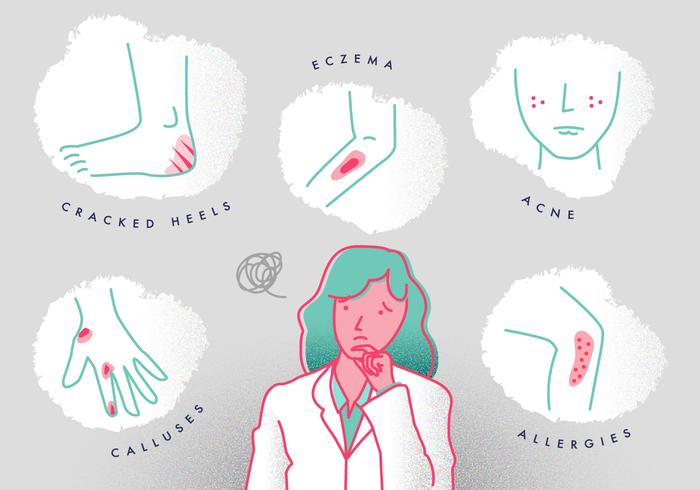Misconceptions And Truths About Acne: Debunking Common Misconceptions
Misconceptions And Truths About Acne: Debunking Common Misconceptions
Blog Article
Content Created By-Cullen Powers
You might think that delighting in delicious chocolate or oily foods is the root cause of your acne, but that's simply one of several misconceptions swirling around this common skin problem. Actually, acne mainly comes from clogged hair follicles, not your last dessert. Misconceptions like these can lead you to adopt inefficient skincare techniques that may even aggravate your situation. As you browse the realities behind acne, you'll uncover insights that could transform your approach to skincare and help you attain clearer skin. So, what actually lies below the surface?
Common Myths About Acne
When it concerns acne, many people rely on common misconceptions that can result in confusion and disappointment. One widespread myth is that eating chocolate or oily foods triggers acne. While diet plan can affect skin wellness, the straight web link between certain foods and acne isn't as clear-cut as many assume.
https://weight-management01008.blogpayz.com/32280357/the-scientific-research-behind-acne-therapy-exactly-how-ingredients-work-to-clear-skin is that you ought to scrub your face vigorously to clean up breakouts. Actually, aggressive scrubbing can irritate your skin and worsen acne.
You may likewise believe that acne only affects teenagers, however adults can experience it also, typically as a result of hormonal modifications or stress. botox tmj believe that tanning can clear up acne, however sun exposure can really lead to skin damages and worsen outbreaks in the long run.
Finally, numerous think that utilizing extreme items will get rid of acne swiftly. However, https://www.medscape.com/viewarticle/953738 can strip your skin of its natural oils, resulting in raised inflammation and more breakouts.
Scientific Facts Behind Acne
Comprehending the scientific realities behind acne can empower you to tackle this usual skin condition better.
Acne happens when hair roots end up being blocked with oil, dead skin cells, and germs. This procedure commonly begins with an overflow of sebum, the oil your skin naturally creates. Hormonal changes, specifically during adolescence or menstrual cycle, can trigger this excess oil.
Germs called Propionibacterium acnes prosper in these clogged pores, resulting in inflammation. When your body immune system reacts, it can cause soreness and swelling, leading to those bothersome acnes or cysts.
Genetics also contribute; if your parents had acne, you may be extra susceptible to it.
Diet regimen and stress degrees can affect acne as well, but research study is still advancing in these areas. While enjoying https://skinrejuvenation34314.snack-blog.com/32162815/change-your-skin-proven-acne-treatment-approaches-that-function-marvels will not straight create breakouts, a well balanced diet can sustain your skin health.
Furthermore, managing stress can decrease hormone fluctuations that might aggravate acne.
Tips for Managing Acne
Taking care of acne successfully requires a combination of everyday skincare practices and way of life changes. Begin by developing a regular skin care routine. Clean your face two times a day with a gentle, non-comedogenic cleanser to eliminate dust and excess oil. Prevent scrubbing too hard, as this can aggravate your skin and aggravate acne.
Next off, include products having salicylic acid or benzoyl peroxide to help protect against breakouts. Constantly follow up with a lightweight, oil-free moisturizer to maintain your skin hydrated. Don't fail to remember sunscreen; select non-comedogenic options to safeguard your skin from UV damages without clogging pores.
Past skin care, take notice of your diet. Limit sweet and greasy foods, and concentrate on fruits, vegetables, and whole grains. Remaining hydrated is critical, so drink plenty of water throughout the day.
Additionally, manage tension through tasks like yoga exercise, reflection, or workout, as stress and anxiety can trigger outbreaks.
Finally, prevent selecting or standing out pimples. This can bring about scarring and additional swelling. If your acne persists, seek advice from a dermatologist for personalized therapy alternatives.
Final thought
In conclusion, it's necessary to separate reality from fiction when it pertains to acne. By debunking usual misconceptions, you can much better recognize your skin and make informed options for your skincare routine. So, why continue to rely on out-of-date concepts when the reality can encourage you? Embrace healthier practices, focus on mild cleaning, and bear in mind that managing acne is a trip. With the ideal understanding, you're one step more detailed to more clear, healthier skin.
